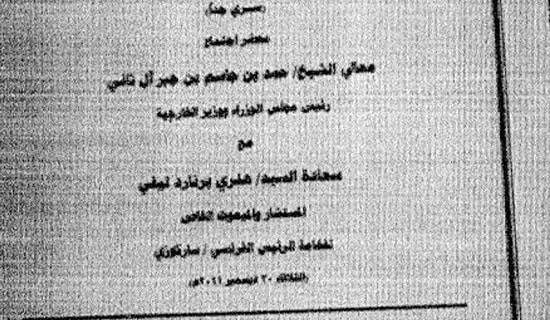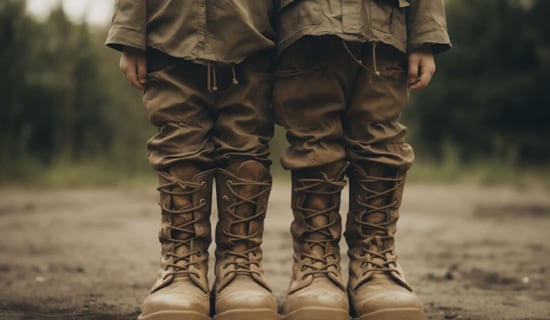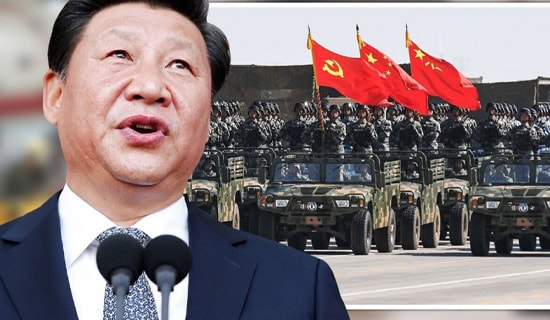
On July 8, 2016, the two-day NATO summit in Warsaw, Poland began. At the summit, NATO members agreed to deploy four multinational battalions to Estonia, Latvia, Lithuania and Poland, on a rotational basis. Furthermore, a multinational framework brigade in Romania will provide a presence in south-eastern Europe. NATO Secretary General Jens Stoltenberg stressed that NATO's military presence in Eastern Europe is "something [NATO] does as a response to what Russia did in Ukraine." Stoltenberg said: "No-one talked about any military presence of the kind we now see in Poland and the Baltic countries before Ukraine, before the illegal annexation of Crimea. What we do is defensive, it is proportionate, and it's fully in line with our international commitments. And it is no way something that justifies any reactions from Russia."[1] However, during a press conference at the summit, Stoltenberg said that NATO does not see any "imminent threat" against any of its allies, though NATO sees "more unpredictability" and "a more assertive Russia."[2]
Despite the strengthening of NATO's military defense in Eastern Europe, Stoltenberg reiterated more than once that NATO's relationship with Russia, NATO's "biggest neighbor," is based on the idea of "strong defense, strong deterrence combined with dialogue." NATO froze all practical cooperation with Russia, after Crimea's annexation in 2014. However, the NATO-Russia Council (NRC) remained functioning to keep political dialogue channels open. The NRC is to meet on July 13 -its third meeting, after the cooperation freeze (the Council's first meeting was held on June 2, 2014, and the second on April 20, 2016).
Stoltenberg said that the West and Russia are not in a "Cold War" situation, but in "a new situation which is different from anything we have experienced before."[3] He also affirmed that NATO will continue its commitment to Ukraine, Georgia and the Republic of Moldova "to help them resist outside pressures", meaning to resist pressures from Russia.[4]
Concerning Ukraine's membership to NATO, Stoltenberg temporized by explaining that this question is not currently on Ukraine's agenda. Stoltenberg stated: "The focus now is how Ukraine can meet NATO standards; how Ukraine can implement reforms and how we can increase the interoperability between Ukrainian forces and NATO forces. And that's exactly also the focus of the comprehensive assistance package of the cooperation between NATO and Ukraine: how we can help Ukraine moving forward when it comes to modernizing, reforming and meeting NATO standards...So we will continue to provide strong political support, practical support for Ukraine, enabling them to move forward and then we have to address the question about membership at a later stage."[5]

NATO
Deputy Secretary Alexander Vershbow receives a decoration from the President of
Ukraine, Petro Poroshenko. (Nato.int, July 9)
It should also be noted, that Montenegro, in an observer status, participated for the first time at the summit . The Balkan country was invited to become NATO's 29th member in December 2015, and subsequently the Accession Protocol was signed in May 2016. Montenegro now enjoys invitee status and is integrating into NATO activities.[6] This was also the first time that the NATO-Georgia Commission convened at a NATO summit. On this occasion, Georgian Foreign Minister Mikheil Janelidze reaffirmed Georgia's determination to achieve NATO membership. For itspart, NATO, given the reluctance of some of its members to extend membership to Georgia, offered as consolation new steps to intensify cooperation, and to help strengthen Georgia's defense capabilities, and resilience capabilities.[7]
Warsaw Summit Communiqué: 'Russia's Aggressive Actions... Are A Source Of Regional Instability'
On July 9, the Heads of State and Government participating in the meeting issued a Warsaw Summit Communiqué, that outlined NATO's policy and positions towards Russia. The communiqué also admonishes Russia to "reverse its recognition of the South Ossetia and Abkhazia regions of Georgia as independent states." The Communiqué stated (all emphases added):[8]
In point 5 - "...Russia's aggressive actions, including provocative military activities in the periphery of NATO territory and its demonstrated willingness to attain political goals by the threat and use of force, are a source of regional instability, fundamentally challenge the Alliance, have damaged Euro-Atlantic security, and threaten our long-standing goal of a Europe whole, free, and at peace..."
In point 9 - "For over two decades, NATO has striven to build a partnership with Russia, including through the mechanism of the NATO-Russia Council (NRC). Russia's recent activities and policies have reduced stability and security, increased unpredictability, and changed the security environment. While NATO stands by its international commitments, Russia has breached the values, principles and commitments which underpin the NATO-Russia relationship, as outlined in the 1997 Basic Document of the Euro-Atlantic Partnership Council, the 1997 NATO-Russia Founding Act, and 2002 Rome Declaration, broken the trust at the core of our cooperation, and challenged the fundamental principles of the global and Euro-Atlantic security architecture. Decisions we have taken, including here at our Summit, are fully consistent with our international commitments, and therefore cannot be regarded by anyone as contradicting the NATO-Russia Founding Act.
In point 10 - "Russia's destabilizing actions and policies include: the ongoing illegal and illegitimate annexation of Crimea, which we do not and will not recognize and which we call on Russia to reverse; the violation of sovereign borders by force; the deliberate destabilization of eastern Ukraine; large-scale snap exercises contrary to the spirit of the Vienna Document, and provocative military activities near NATO borders, including in the Baltic and Black Sea regions and the Eastern Mediterranean; its irresponsible and aggressive nuclear rhetoric, military concept and underlying posture; and its repeated violations of NATO Allied airspace. In addition, Russia's military intervention, significant military presence and support for the regime in Syria, and its use of its military presence in the Black Sea to project power into the Eastern Mediterranean have posed further risks and challenges for the security of Allies and others."
In point 11 - "NATO has responded to this changed security environment by enhancing its deterrence and defense posture, including by a forward presence in the eastern part of the Alliance, and by suspending all practical civilian and military cooperation between NATO and Russia, while remaining open to political dialogue with Russia...."
In Point 14 - "The Alliance does not seek confrontation and poses no threat to Russia. But we cannot and will not compromise on the principles on which our Alliance and security in Europe and North America rest. NATO will continue to be transparent, predictable and resolute."
In point 22 - "We remain committed to a continued coherent international approach, in particular between NATO and the European Union (EU). NATO's response is in support of this overall effort, which includes sanctions as decided by the EU, the G7 and others, to promote a peaceful solution to the conflict and to address Russia's actions."
In point 59 - "NATO missile defense is not directed against Russia and will not undermine Russia's strategic deterrence capabilities. NATO missile defense is intended to defend against potential threats emanating from outside the Euro-Atlantic area. We have explained to Russia many times that the BMD [Ballistic Missile Defense] system is not capable against Russia's strategic nuclear deterrent and there is no intention to redesign this system to have such a capability in the future. Hence, Russian statements threatening to target Allies because of NATO BMD are unacceptable and counterproductive.[9] Should Russia be ready to discuss BMD with NATO, and subject to Alliance agreement, NATO remains open to discussion."
In point 113 - "We reiterate our support to the territorial integrity and sovereignty of Georgia within its internationally recognized borders...We call on Russia to reverse its recognition of the South Ossetia and Abkhazia regions of Georgia as independent states, to stop its construction of border-like obstacles along the administrative boundary lines, and to withdraw its forces from Georgia. NATO does not recognize the so-called treaties signed between the Abkhazia region of Georgia and Russia in November 2014, and the South Ossetia region of Georgia and Russia in March 2015. These violate Georgia's sovereignty and territorial integrity and blatantly contradict the principles of international law, OSCE principles and Russia's international commitments..."

NATO
Heads of State and Government (Source: Nato.int, July 8, 2016)
Russian Reactions To The Summit
Gorbachev: 'The Entire Rhetoric In Warsaw Simply Cries Out An Aspiration To Almost Declare War On Russia'
SUPPORT OUR WORK

Russian politicians reacted strongly to the statements made at the NATO summit. Mikhail Gorbachev, former CPSU First-Secretary, the USSR's last president and a Nobel Peace Prize laureate, in a July, 9 interview to the INTERFAX news agency was highly critical of the summit claiming that NATO was preparing to escalate a cold war into a hot one. Gorbachev said: "The entire rhetoric in Warsaw simply cries out an aspiration toalmost declare war on Russia. They only talk of defense, but in fact they are getting themselves ready for an offensive action". He then added: "NATO members are trying to give an appearance that nothing frightens them, and this is highly suspect. By doing this they are trying to drag us and the whole world into a greater confrontation.... The world community should exert maximal effort to stop this slide towards war ...so no one will make a habit of playing on the difficulties in the world situation, [while] pushing the world towards a hot war."[10]
Foreign Ministry Spokesperson Maria Zakharova said: "An initial review of the summit shows that NATO continues to live in a military-political alternative reality. Acting contrary to the objective interests of maintaining peace and stability in Europe and the need to combine the capabilities of all responsible international parties against very real modern challenges, the alliance has focused its efforts on containing an illusory 'threat from the East.' The deep divide between the NATO policy of strengthening the [eastern] flank when the enormous terrorist threat is coming from the south is evidence of the bloc's disregard for the critical need to serve and protect the security of the people in the NATO member states."
She then added: "Exaggerated attempts are being made to demonize Russia in order to justify the military measures taken by the bloc and to draw public attention away from the destructive role of the bloc and some of its allies in provoking crises and fanning tensions around the world. At the same time, the alliance refuses to see the negative long-term consequences and risks for the system of Euro-Atlantic security that are coming from Washington and Brussels' persistent efforts to change the balance of forces, which include the accelerated implementation of US-NATO ballistic missile defense plans in Europe."[11]
Russia's Envoy To NATO: 'We Are Dealing With A Significant Change In The Military-Political Situation'
Concerning the deployment of NATO's battalion in Eastern Europe, Russia's envoy to NATO Aleksander Grushko said that Russia is dealing with a significant change in the military-political situation. Grushko stated: "NATO should be aware that the counterbalancing operation will require steps to create the balance we used to have before NATO's attempts to create a counter potential at the borders that are now already NATO's borders. Indeed, these decisions do not match [the Russia-NATO Founding Act]. We are dealing with a significant change in the military-political situation. There is no parity of forces which used to exist before all the latest NATO preparations. Four battalions are only part of NATO efforts, which also include a US initiative of building confidence in Europe. We have an integrated rather than an isolated approach to this activity: how all NATO steps and measures, including defense planning, affect the pan-European security and our interests from the point of view of maintaining our defense capability at an appropriate level."
The State Duma's Committee on International Affairs Deputy Chair, Aleksandr Romanovich, said: "The deployment of NATO's battalions in the Baltic states is not threatening Russia militarily. It's a symbolic act which shows that we should not expect friendly moves from the Alliance". He then added that NATO is displaying its readiness to escalate the tensions even further.[12]
Deputy Speaker of the Duma Igor Lebedev, stated: "NATO utilizes the Baltic states since it's much closer from Tallin, or Riga and from or Vilnius to Moscow and St. Petersburg than from Berlin, Paris or London. It's about pure military strategic interests -to deploy NATO's forces in close proximity to our borders in order to exert military -political pressure on us." He then added: "[Russia] is the only country in the world which is able to stand up to the Western countries in their quest for world domination. They [the Western countries] do understand that clearly, and everything which is taking place around our country now focuses on serving the goal of [making] our influence on the other countries insignificant."[13]
Russian MP: 'This [Missile Defense Shield] System Is Configured Exclusively Against Russia's Nuclear Potential'
Criticism was also directed towards the NATO's missile defense system in Eastern Europe. Professor at the Moscow Higher School of Economics Dmitri Evstafiev said: "As long as some ' Cold War' Mohicans remained in the American establishment, those who remember what it felt like to sit in a bunker while awaiting a nuclear strike, there was nothing to worry about. But lately there are some dangerous signs. Let us remember that during the Georgia war [the Russian-Georgian war of August 8, 2008] the Pentagon seriously contemplated a scenario using tactical nuclear weapon in order to strike the Roki tunnel [the tunnel which the Russian army used to invade Georgia] The discussion about the American missile shield in Europe just demonstrated again contemporary Washington's level of irresponsibility in the sphere of nuclear deterrence. With the new generation of American politicians and military officers, who are used to 'UAV wars,' instead of partners, who understand that you don't play 'bones' with nuclear weapons, we risk facing political 'gamers,' who will look for a reset button, after making the fatal decision"[14]
The State Duma Defense Committee chair and the former commander of the Russian Black Sea Fleet, Admiral Vladimir Komoedov, stated: "Since it [the missile defense shield] is in a state of initial operational readiness, therefore part of its infrastructure is operational and ready for use, i.e. for shooting down our rockets. This system is configured exclusively against Russia's nuclear potential - [the Western claims that the system is needed against] Iraq, Iran are sly tricks and bluffing". He then added that Russia will have to target the NATO missile defense system positioned in Europe, Romania and Poland, stressing that this is a hypothetical scenario, since Moscow has a "defensive military doctrine." Komoedov said: "We will never be the first to use nuclear missiles. We may do so only in a retaliatory counterstrike."[15]
Russia-Poland Summit
On July 12, Russia and Poland, the summit's host, organized Russian-Polish consultations at a deputy foreign minister level in Moscow. Prior to the meeting, Russian First Deputy Foreign Minister Vladimir Titov stated: "Harsher anti-Russian rhetoric can be heard in statements by high-ranking Polish politicians. The 'war' on the Soviet war memorial heritage continues. Facts from our joint history are being distorted. The agreement on visa-free travel between the Kaliningrad Region and Polish regions has been suspended. We, on our part, remain open, as before, to constructive dialogue in the interests of finding reasonable solutions to the problems that have accumulated through no fault of our own."[16]
One of the key items on the agenda of the meeting between Titov and his Polish counterpart Marek Ziółkowski was the decisions taken at the NATO summit in Warsaw, as well as Warsaw's demand for the return of the wreckage of the Polish presidential plane that crashed in 2010 in western Russia, killing all 96 people on board including Polish president Lech Kaczyński.[17]
On the same day, Poland's Super Express tabloid published an interview with Polish Foreign Minister Witold Waszczykowski. In the interview, Waszczykowski said that if Russia decides "that there is no need to escalate tension, we will not take further steps in the context of NATO to further strengthen the Alliance's eastern flank." However, he added that "if the situation becomes inflamed, [Poland] will demand an even bigger increase in the [NATO] military presence."[18]
It is worth noting that although Poland is NATO's staunchest Ally, during the summit, U.S. President Barack Obama voiced concern over democracy in Poland due to legislation passed by the ruling Law and Justice Party. Obama said: "I expressed to [Polish] President Andrzej Duda our concerns over certain actions and the impasse around Poland's Constitutional Tribunal. I insisted that we are very respectful of Poland's sovereignty, and I recognize that parliament is working on legislation to take some important steps, but more work needs to be done." He then added: "And as your friend and ally, we've urged all parties to work together to sustain Poland's democratic institutions. That's what makes us democracies - not just by the words written in constitutions, or in the fact that we vote in elections - but the institutions we depend upon every day, such as rule of law, independent judiciaries, and a free press."[19] Poland's state-run broadcaster TVP reportedly censored Obama's criticism and made it appear complimentary.[20]
Endnotes:
[1] Nato.int, July 8, 2016.
[2] Nato.int, July 9, 2016.
[3] Nato.int, July 9, 2016.
[4] Nato.int, July 8, 2016.
[5] Nato.int, July 9, 2016.
[6] See MEMRI Special Dispatch No. 6443, Russian Reactions To Negotiations On Montenegro's NATO Membership, May 20, 2016.
[7] Nato.int, July 8, 2016.
[8] See NATO's Warsaw Summit Communiqué, July 9, 2016.
[9] See MEMRI Special Dispatch No. 6451, Russia This Week - May 23-30, 2016, May 30, 2016.
[10] Interfax.ru, July 9, 2016.
[11] Mid.ru, July 10, 2016.
[12] Ria.ru, July 8, 2016.
[13] Ria.ru, July 8, 2016.
[14] Riafan.ru, July 10, 2016.
[15] Ria.ru, July 8, 2016.
[16] Mid.ru, July 8, 2016.
[17] Thenews.pl, July 12, 2016.
[18] Thenews.pl, July 12, 2016.
[19] Rt.com, July 11, 2016.
[20] Bloomberg.com, July 11, 2016.




